In this guide we will give you 15 actionable tools to take your sleep game to the next level.
In fact, we combine the knowledge from the most recent studies, the best books and podcasts with our unmatched industry experience.
Nowadays, sleep is scarce. But it’s a biological imperative wired into our DNA – impacting everything from mood to lifespan.
This guide will help you make every second count.
So let’s make sleep your superpower.
Table of contents (& handy TL;DR)
- 1. GET SUNLIGHT INTO YOUR EYES EARLY IN THE MORNING
- 2. TIME YOUR STIMULANTS (CAFFEINE)
- 3. AVOID BRIGHT NIGHT LIGHTS, THEY WILL DISRUPT YOUR SLEEP
- 4. KEEP YOUR CO2 LEVELS LOW
- 5. KEEP THE TEMPERATURE LOWER THAN YOU THINK
- 6. AVOID AFTERNOON NAPS
- 7. STAY AWAY FROM MELATONIN
- 8. SUPPLEMENT COCKTAIL FOR BETTER SLEEP
- 9. NO FOOD 2-3 HOURS BEFORE GOING TO BED
- 10. POOP BEFORE GOING TO BED
- 11. SLEEP IN TOTAL DARKNESS
- 12. ALCOHOL KILLS SLEEP, AVOID IT AT ALL COSTS
- 13. SCHEDULE & STAY CONSISTENT
- 14. GET OUT OF BED IF YOU CAN’T SLEEP
- 15. HYDRATE WITH SALT AND ELIMINATE NIGHTLY BATHROOM VISITS
1. GET SUNLIGHT INTO YOUR EYES EARLY IN THE MORNING
There’s a powerful tool for acing the sleep game, and it’s right outside your window – sunlight. Waking up the right way isn’t as straightforward as a light switch. It’s more like a sophisticated orchestra, guided by the morning sunlight. And since a good night’s sleep starts in the morning, you should make the following a habit.
Our eyes harbor special neurons known as retinal ganglion cells, which communicate the sunlight to our body’s internal clock, the suprachiasmatic nucleus (runs our circadian rhytm). These cells are picky light lovers; they thrive on the unique quality and intensity of early morning sunlight.
And 4-10 minutes is enough.
Catching the sun’s rays upon waking (or a bit later) prompts your body to release a burst of the hormone cortisol (which is awesome in the morning). Think of this as your natural caffeine shot on steroids, revving up your heart rate and preparing your biology for the day. Crucially, this morning cortisol rush also triggers the release of melatonin, your natural sleep aid, helping it peak 12 to 16 hours later, exactly when you need to go to sleep.
Nailing this cortisol-melatonin timing can transform your sleep and overall well-being. Mess it up, and you risk a host of health issues later in life. Get it right, and you’re not only waking up the right way, you are making sure your circadian biology will help you fall asleep at night.
Here’s the challenge: the kind of light intensity these neurons crave is hard to get from your standard indoor lighting or your smartphone screen. Your eyes need an abundance of photons, hence, stepping outside and soaking in natural light is the way to go.
Living in regions with limited sunlight, like Scandinavia, or amongst skyscrapers? You might need to spend more time outdoors or use strong artificial lights that mimic sunlight or emit lots of blue light. Yes, contrary to popular belief, morning blue light can be your ally.
So, let’s seize that sunlight and tune our internal clocks right. Your body will be grateful, and you’ll master the sleep game.
2. TIME YOUR STIMULANTS (CAFFEINE)
Let’s delve into the world of caffeine, that invigorating substance many of us can’t live without. It’s not just in coffee, MADMONQ®, but also in tea, energy drinks, and even some soft drinks like cola. Yup, you might be consuming caffeine without even realizing it.
Apart from the latest evidence, that caffeine is awesome for long-term mental health, it is primarily a stimulant that works its magic by boosting our body’s sensitivity to dopamine (and slightly increasing it) and suppressing adenosine signaling – our body’s “sleepiness” signal. Like every power-up, it comes with a cooldown – the dreaded caffeine crash. That’s when your suppressed adenosine levels surge back (caffeine unblocks the adenosine receptor), making you feel even sleepier than before.
Hence, the power and timing of caffeine are critical. Considering that the half-life of caffeine is around 5-6 hours, a late-day caffeine intake can disrupt your sleep cycles, particularly the deep sleep stage where all the essential rest and rejuvenation happens.
Here’s the tricky bit – you might fall asleep just fine, but your sleep will be inefficient and you might find yourself feeling 6/10 the next day because you won’t be fully rested. Caffeine messes up your sleep phasing and you may not spend sufficient time in REM / deep phases. To dodge this, it’s smart to have your last caffeine intake 8-10 hours before your planned sleep time.
But hey, we’re all unique, right? Some of us can handle caffeine late in the day, while others can’t even sip a cola after lunch. This isn’t about demonizing caffeine, it’s about understanding and respecting your body’s unique response. You need to figure out for yourself how much caffeine, and at what times of the day, you can handle.
Caffeine is an awesome molecule and a lot of research is showing its long-term health and preventative benefits. So go ahead – indulge, making yourself feel good, motivated, and energized. But use it wisely.
Experiment with your caffeine intake, learn from your body’s responses, adjust accordingly, and find the sweet spot that works best for you.
3. AVOID BRIGHT NIGHT LIGHTS, THEY WILL DISRUPT YOUR SLEEP
Let’s tackle how late-day bright light can mess with our sleep, biology, and even dopamine levels. This one’s particularly important for us gamers and streamers, who are exposed to intense, often artificial light for extended periods of time.
Early in the day, intense bright light (especially sunlight) helps set our biological clocks. It is one of the best things we can do to wake up properly. However, the longer we stay awake and the deeper we are into our circadian cycle, the more sensitive our biology becomes to bright light and the angle it shines into our eyes.
Even a relatively small amount of bright light (from your gaming screen or an overhead bulb) can trick your brain into thinking it’s still go-time, making it harder to fall asleep and messing with your sleep patterns.
Bright bathrooms are particularly demonic. Usually equipped with strong bright artificial lightning and white walls, they can spell doom to your restful sleep.
To keep your internal clock in sync, strive for maximum safe light exposure early in the day and minimal light, artificial or sunlight, after 8:00 p.m. Definitely avoid bright light between 11:00 p.m. and 4:00 a.m., or you risk disrupting your dopamine (even for multiple days after exposure), the neurotransmitter that helps us do stuff.
Why is this critical? Studies have shown that light exposure during these hours suppresses dopamine release and can negatively impact learning, mood, and even lead to feelings of depression.
The location of light matters, too. The cells in our eyes that signal our brain’s central clock are mostly located in the lower part of our retina – and are great at sensing the overhead light around us. So, the higher and brighter the light source, the more it can disrupt your circadian rhythm. Think twice about those overhead fluorescent lights during your late-night gaming sessions. Opt for dimmer, lower-angle lights to minimize the negative effects of nightly light exposure.
4. KEEP YOUR CO2 LEVELS LOW
A hidden factor that could be affecting your sleep quality is carbon dioxide (CO2). While we’re all cozied up in our rooms, a silent process is happening. Every breath we exhale is increasing the CO2 concentration around us, and this can have a surprising impact on our sleep.
As CO2 levels rise, our bodies instinctively try to compensate by increasing our ventilation volume – we breathe more deeply to get more oxygen (or we increase our breathing rate). This extra effort isn’t without cost though, as it puts more strain on our hearts. They have to work harder, pumping faster to get blood flowing through the lungs and maintain the necessary oxygen supply. This effectively increases our resting heart rate. Imagine this happening while you’re asleep – it’s like your body’s running a quiet marathon without your knowledge. Not the ideal way to achieve restful sleep.
Here’s a bit of a shocker – the air we exhale contains CO2 concentrations that are 100 times higher than in the Earth’s atmosphere. It’s like we’re creating our own mini greenhouse effect right in our bedrooms. And research backs this up, showing that high CO2 levels can significantly impair cognitive function and decision-making skills – not the best way to wake up in the morning.
To add perspective, the atmospheric CO2 is around 411 parts per million (ppm), yet it’s reasonably simple to reach 1000 ppm in a poorly ventilated room. And at these levels, some of your cognitive abilities can plummet by a shocking 25%.
So what can we do about this? The solution is surprisingly simple. Keep your doors slightly open or crack a window at night. This can help maintain a healthier balance of air in your room. But remember, it’s a balance – you also have to consider other factors like temperature and potential pollution.
Good air quality is a key ingredient for a good night’s sleep. It’s not just about the right mattress or the perfect pillow. Sometimes, it’s as simple as the air we breathe.
5. KEEP THE TEMPERATURE LOWER THAN YOU THINK
The temperature of your environment plays a crucial role in how well you sleep.
Research has shown that the ideal sleep temperature for most people is around 15.5 to 19.4 degrees Celsius. This might sound a tad cool, but let’s go on a science adventure to understand why.
When you start to snooze, your body’s internal temperature naturally decreases. By keeping your room on the cooler side, you can actually help facilitate this process. A study published in “The American Journal of Physiology” demonstrated that sleeping in cooler environments could even increase the percentage of time spent in REM sleep – the phase of sleep where memory consolidation is happening.
On the flip side, a room that’s too hot or too cold can disrupt this natural temperature drop, leading to restlessness and even insomnia. A study in the “Journal of Physiological Anthropology” found that exposure to extreme temperatures during sleep impacts overall sleep quality significantly.
But remember, everyone’s comfort zone may be a bit different, and other factors like humidity and personal preference can also come into play. The key is to experiment and find what works best for you.
6. AVOID AFTERNOON NAPS
It might seem like a good idea to catch up on some rest during the day, but this could be a trap that leads to more nighttime sleep problems.
You see, our bodies operate on a natural sleep-wake cycle known as the circadian rhythm. Napping, especially in the afternoon, can disrupt this rhythm and make it harder for you to fall asleep at night. Even though you might feel more tired during the day without your nap, this can actually be a good thing as it makes it easier to fall asleep and stay asleep at night.
Longer naps (30 mins or more) or rest periods can push you into deep sleep states where more sophisticated “rest” mechanisms are initiated, which might make you feel groggy when you wake up and will interfere with your nighttime sleep – eg. some adenosine may be cleared up from your system, pushing your natural sleepiness later into the night.
Now, this doesn’t mean all daytime rest is bad. Context matters. If you are learning, non-sleep deep rest (NSDR) and short 20-minute naps can actually enhance learning and focus. But if sleeping during the night is your priority, try to avoid napping.
7. STAY AWAY FROM MELATONIN
Melatonin, that small yet mighty hormone, often hailed as the hero of sleep, isn’t just a one-trick pony. It’s more like a multi-talented tool with a range of capabilities that extend beyond its marketed benefits.
Apart from helping us fall asleep, melatonin also plays a crucial role in our development. One of its less-known roles is acting as a gatekeeper for the onset of puberty in children. By constantly releasing melatonin throughout the day and night, the body ensures the puberty-triggering hormones are kept at bay.
When we introduce exogenous melatonin, we might inadvertently be meddling with this delicate balance. If you’re an adult, this might not affect puberty, but it could potentially influence other systems.

Some mice studies shown, that supplementing melatonin led to reduction of… testicular size. This has not been replicated in humans, but it is a good enough reason to stay vigilant.
As for its famed sleep-promoting role, while melatonin can indeed help lull you into sleep, it doesn’t necessarily help you stay asleep. If you’re waking up at 3 AM, staring at the ceiling, melatonin will be of no help as it could be due to various factors like sleep apnea, anxiety, or that late-night espresso shot.
Also, here’s a fun fact (or maybe not so fun) – the melatonin supplement industry isn’t as tightly regulated as you might think. The melatonin content in pills can swing wildly, leading to unpredictability in effects. So if you do decide to give it a shot, make sure you get a quality product.
Remember, contrary to popular belief, a bottle of melatonin is not a simple sleep switch.
8. SUPPLEMENT COCKTAIL FOR BETTER SLEEP
So, what to take? Here’s the ultimate sleep-boosting cocktail that could help you conquer those sleepless nights. But remember, always run these by your trusted health advisor before starting anything new.
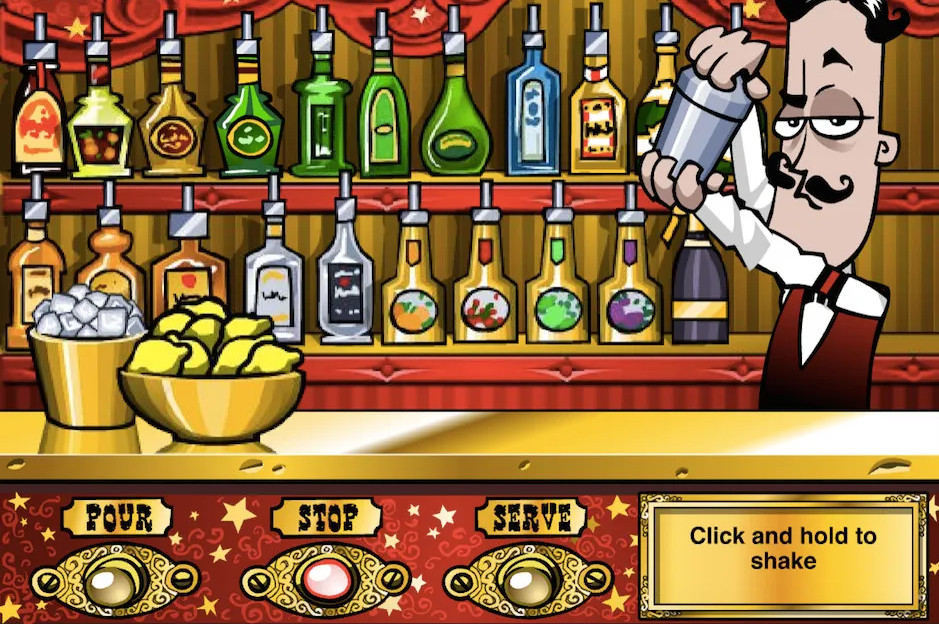
Magnesium Threonate or Magnesium Glycinate: Think of these as your sleep superheroes. Both of them can swoop in, make you feel a tad drowsy, and whisk you off to a deeper sleep. Magnesium Threonate is the Batman of the duo, a bit pricier but with the unique power to cross the blood-brain barrier for potentially mightier effects. If you’re counting pennies, Magnesium Glycinate is your friendly neighborhood Spiderman, ready to swing in and save your sleep without burning a hole in your pocket. Just remember, every hero has a weakness. For some, magnesium can cause stomach upset. So, start with a lower dose.
Apigenin: This bioflavonoid, found in chamomile tea and various fruits and veggies, is like a gentle lullaby for your buzzing brain. It can help put your racing thoughts to sleep, soothing your mind to prepare it for a peaceful night. For a bit of old-school charm, you can also sip on a warm cup of chamomile tea before bed. But remember, like a powerful lullaby, at higher doses, apigenin can make you really sleepy.
Myo-Inositol: If you’re the type who wakes up at 2 or 3am, staring at the ceiling and plotting world domination (or just worrying about work), myo-inositol could be your secret weapon. A dose of around 900mg (up to 2g) can help you turn off your inner villain and drift back to dreamland quicker.
Remember, these are awesome additions, not magic potions. They work best with a balanced lifestyle, a healthy diet, and regular exercise. Sleep is a comprehensive project, not a solo mission.
9. NO FOOD 2-3 HOURS BEFORE GOING TO BED
When you eat shortly before bedtime, you’re essentially giving your body a second job to do while it should be preparing for rest. Your body has to rev up its engine again to deal with this unexpected load of food.
Because digestion is a fairly energy-intensive process, your heart rate stays elevated to support all the necessary liver / intestine processes. This means you miss out on the usual early-night dip in heart rate that signals your body to transition into deeper stages of sleep.
Moreover, as your body is preoccupied with breaking down that late-night snack, it may delay or even shortcut some essential sleep processes. This could lead to less restorative sleep and leave you feeling groggy in the morning. And we all know how a bad night’s sleep can ruin the entire next day.
A study published in the American Journal of Physiology (Romero-Corral et al., 2010) supports this, showing that late-night overeating led to less restful and restorative sleep.
Now, as a side note, there are other potential downsides to late-night eating. These include increased risks of heartburn, acid reflux, or even gastroesophageal reflux disease (GERD), as your body struggles to digest food in a horizontal position.
Make sure to have your last bite 2-3 hours prior going to sleep. Your sleep quality will improve as your body will focus on sleeping, not digesting.
10. POOP BEFORE GOING TO BED
While there isn’t an abundance of direct scientific research on the topic, we can make some reasonable hypotheses about why it may be beneficial to empty your bowels before sleep.
Firstly, by emptying your bowels before bedtime, you limit the absorption and reabsorption of potentially unwanted substances that may have accumulated in your digestive system throughout the day. This can include waste products, toxins, and byproducts of digestion. By eliminating these substances, you reduce the load on your body’s detoxification systems and allow them to function optimally during the night.
While many will not have any issues, people suffering from leaky gut (a condition where the intestinal lining allows toxins into the bloodstream) will find this very beneficial.
Additionally, having a clear bowel can promote better sleep quality. When your digestive system is empty, your body can focus its energy on restorative processes. This may contribute to a more restful sleep and improved overall well-being.
11. SLEEP IN TOTAL DARKNESS
To get the best night’s sleep, complete darkness is the key.
Yet, it’s not that simple. Over 85% of people are unable to achieve complete darkness in their bedrooms. Eg – living on a busy street or keeping some sort of light turned on during the majority of the night.
Research shows that being exposed to light (as little as few lux during your zZz time) can have negative effects and wreak havoc on our natural circadian rhythm. Unfortunately, your eyelids are not that thicc and allow light through. And excess light may falsely signal the body and trick it into thinking it’s dawn and consequently start the waking up cascade.
One of the effects is production of cortisol. Introducing higher-than-normal amount of cortisol during sleep will derail some of your body’s recovery processes, leading to lower-quality sleep.
So if you want to improve your sleep, make sure to sleep in darkness.
Or get a high quality sleep mask.
12. ALCOHOL KILLS SLEEP, AVOID IT AT ALL COSTS
All right, let’s get serious and dive into the not-so-fun facts about alcohol and its impact on sleep. Even though alcohol has sedating properties (helps us feel sleepy) when we consume it, our body views it as a toxic substance and prioritizes its removal above all else, putting our regular rest and recovery on the back burner.
Picture this: when alcohol enters your system, your heart rate goes up and your liver works intensely to break it down and remove it from the system. If this happens before sleep, instead of settling down for a night of rejuvenating rest, your body is working double-time to cleanse itself of this intruder.
Sleep, the critical period for restoration and recovery, becomes a battleground for detoxification. Your body’s resources, which would ideally be used for healing and repairing your cells, are now focused on the detox mission.
Moreover, alcohol disrupts your sleep cycles, particularly deep sleep (say goodbye to them gym gains). The result is always poor-quality sleep that leaves you feeling less than optimal, regardless of the number of hours you were in bed.
In short, alcohol is a serious saboteur of quality sleep. So, that seemingly harmless glass of wine or beer is your sleep’s enemy.
If sleep is your priority, do yourself a favour and ditch the alcohol. Instead, let your body focus on what it does best during sleep – recovery and rejuvenation.
13. SCHEDULE & STAY CONSISTENT
We know. Boring.
But consistency is key, especially when it comes to sleep. Maintaining a regular sleep schedule can significantly impact your sleep quality and overall health, and the reasoning behind this lies deep within our biology.
Our bodies operate on a 24-hour cycle known as the circadian rhythm, which regulates many biological processes, including the sleep-wake cycle. This internal clock is influenced by environmental cues, primarily light and darkness, but it also thrives on regularity.
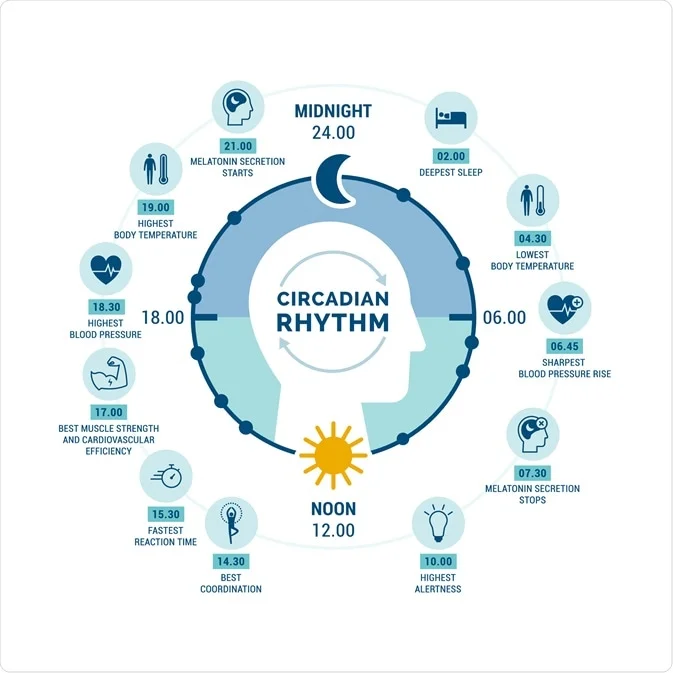
By sticking to a consistent sleep schedule, waking up and going to bed at the same time every day, you reinforce your body’s circadian rhythm. Over time, your body begins to anticipate sleep (and waking up) during these set hours. The hormone melatonin, which signals your body that it’s time for sleep, starts to be released at the same time each day, making it easier to fall asleep and wake up.
Moreover, a regular sleep schedule ensures optimal health. Irregular sleep patterns can lead to sleep deprivation, and a host of associated health problems like heart disease, obesity, and cognitive impairments.
Remember, consistency is about both bedtime and wake-up time. Sleeping in on weekends may feel like a luxury, but over long-term is not strategic.
The restorative deep sleep happens mostly in the first half of the night, shifting bedtime may affect the amount of deep sleep you get throughout the night. Conversely, if you wake up earlier after going to bed later than usual, you may be robbing yourself of 40-70% of your REM sleep, which is responsible, among others, for memory consolidations and happens mostly during the second half of the night.
Maintaining a strict sleep schedule aligns your biological clock with your daily routines, optimizing your sleep quality and overall health. It’s a commitment that requires discipline but pays off with dividends in the form of restful nights and energized days.
14. GET OUT OF BED IF YOU CAN’T SLEEP
When it comes to achieving quality sleep, sometimes counterintuitive strategies can provide surprising benefits. One such tactic is actually getting out of bed if you’re having difficulty falling asleep.
Lying awake in bed, watching the minutes tick by, can increase anxiety (increase in cortisol) and exacerbate sleeplessness. It’s a frustrating cycle – the more you can’t sleep, the more nervous you become, and the more your sleep eludes you. This is where the concept of getting out of bed comes into play.
By leaving your bed, you disrupt this negative cycle. Engage in a calming activity for about 20-30 minutes – maybe read a book, meditate, or practice some gentle stretches. This helps your mind to reset and reduces the anxiety associated with your sleeping space. Once you feel getting sleepy, return to your bed.
However, there’s a critical aspect to consider during this out-of-bed time: light exposure. Avoid bright lights. Opt for dim, warm lights that don’t disrupt your body’s internal clock.
Remember, your bed should be a sanctuary for sleep. If sleep is not happening, step away, reset, and return when you’re ready. By understanding your body’s responses and adapting your approach, you can transform your sleep struggles into restful nights.
15. HYDRATE WITH SALT AND ELIMINATE NIGHTLY BATHROOM VISITS
Now, let’s dive into the concept of optimal hydration before bed, specifically with a mixture that might raise a few eyebrows – water with salt. Before you dismiss it, let’s look at the science.
Firstly, hydration is crucial for numerous bodily functions, including a good night’s sleep. But consuming a large amount of water before bed can lead to frequent bathroom visits, disrupting your sleep.
So what should you do?
Here’s where the salt comes into play.
Salt, specifically sodium, plays a pivotal role in our body’s fluid balance. When you consume a small amount of salt with water, it aids in retaining the fluids in your body. This is because sodium is a potent electrolyte that helps regulate the movement of fluids in and out of cells.
By having a glass of water with salt before bed, you’re not just hydrating yourself, but also ensuring that the water is effectively utilized and stored within your body. This reduces the likelihood of frequent night-time urination, allowing for uninterrupted, quality sleep.
However, it’s crucial to remember that this doesn’t mean loading up on excessive salt is a good idea. A small pinch in your pre-bedtime water should suffice. It’s about finding a balanced approach that promotes both hydration and quality sleep.
Hydration and rest go hand in hand, and with the right approach, such as a glass of salted water, you can ensure both are adequately taken care of.




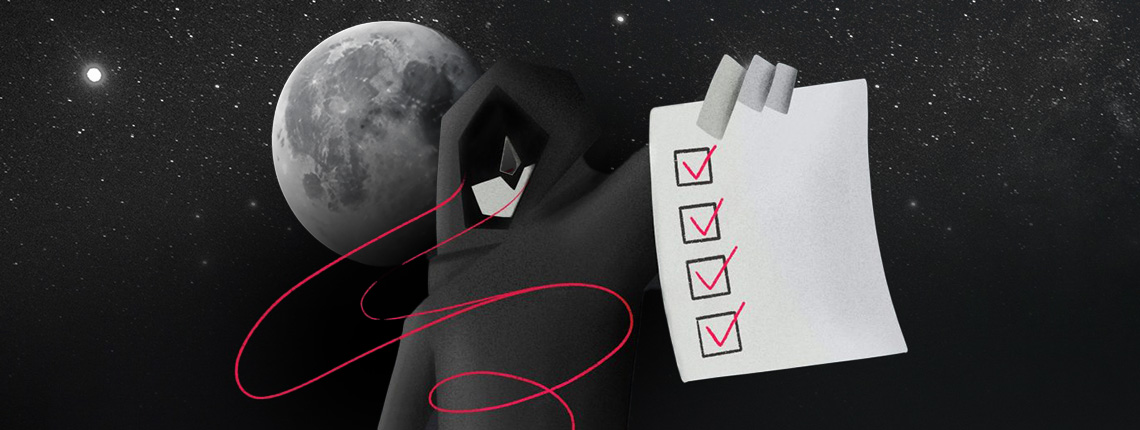

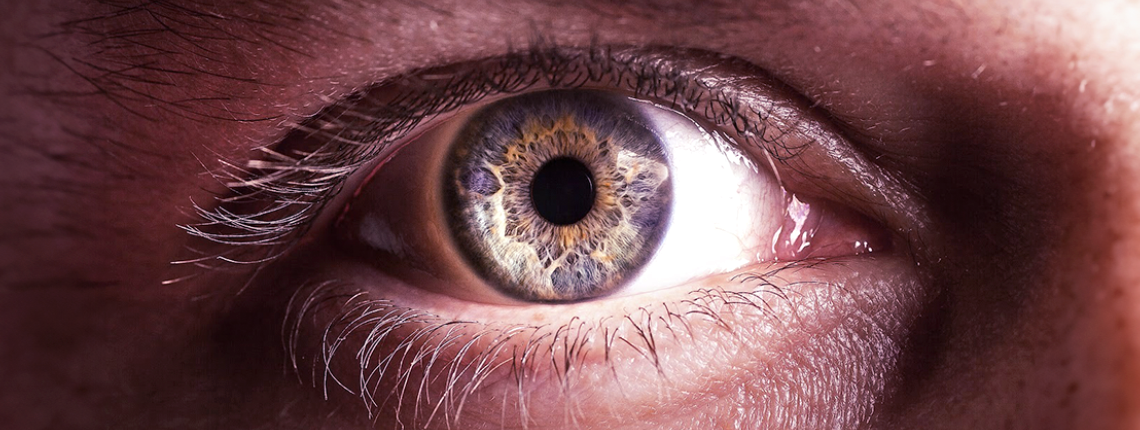
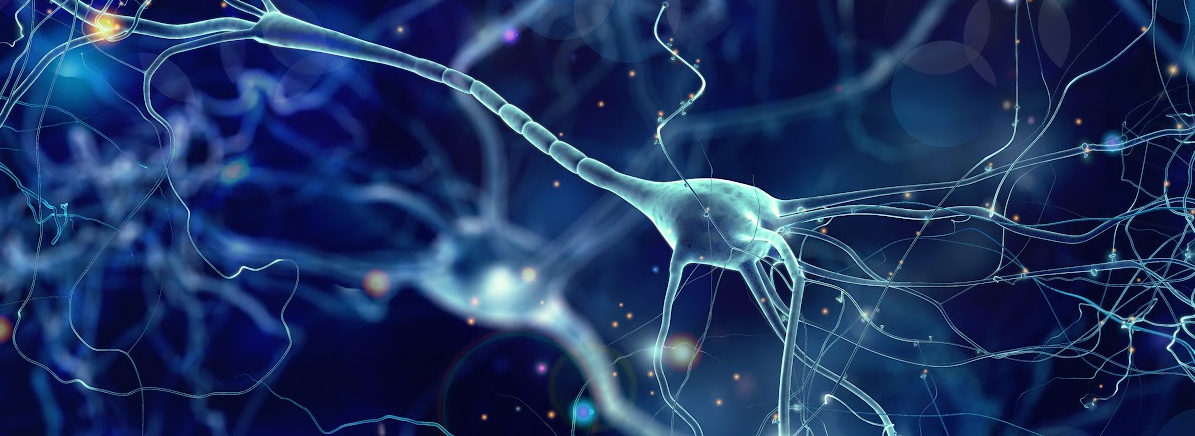

Comments
These tips are very useful guys ! Great work as always, it been educative and funny in the same time, maybe people from your team should teach yungsters on school, keep up the good work !
Leave a Comment